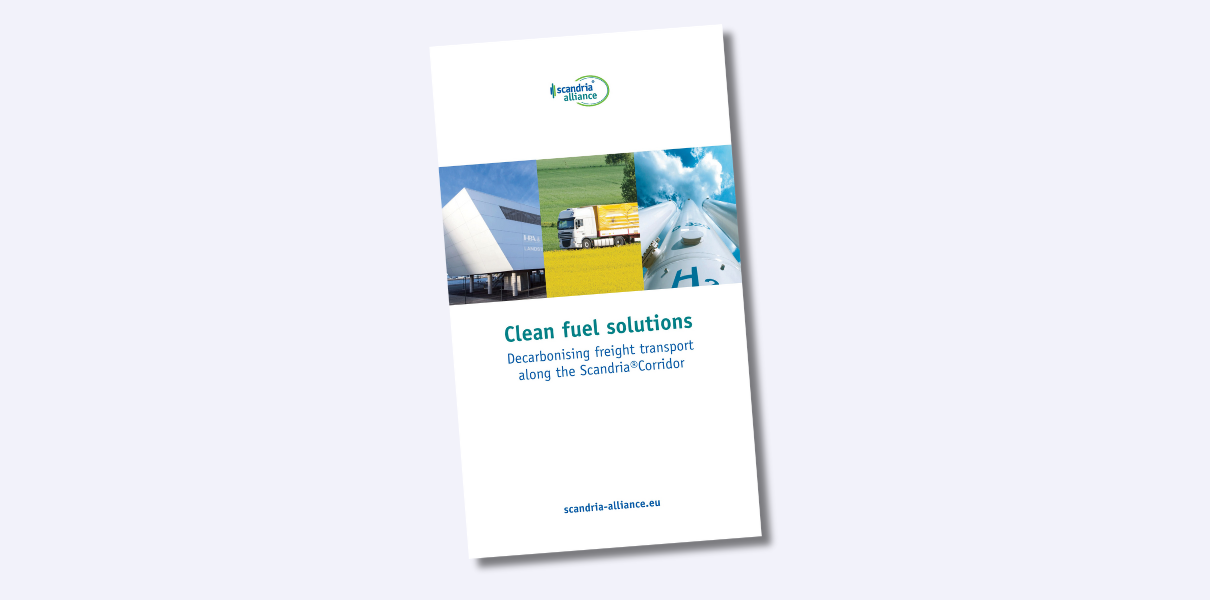Our clean fuels task force’s publication highlights already applied clean fuel solutions for port handling, city logistics and long-distance heavy duty transport.
Compared to passenger transport, decarbonisation of freight transport is still in an initial phase where different technological concepts are being explored. Organised by private stakeholders and international by nature, stakeholders need to be in constant dialogue with each other across sectors and borders to make progress. By setting the right framework conditions, also cities and regions can indirectly influence the decarbonisation pathway in freight transport. Incentivising the use of clean fuels and disincentivising the use of fossil fuels is one example for this.
A new brochure published by the Scandria®Alliance now highlights some already applied solutions for decarbonising freight transport along the Scandria®Coridor – be it in long-distance transports or on the last mile. A special focus is on the following three areas:
- port handling,
- city logistics,
- long distance heavy-duty transport.
The publication is the result of the work of the Scandria®Alliance task force on clean fuels. This task force acts as a platform bringing together clean fuel deployment projects along the ScanMed corridor. It promotes a multi-fuel approach and has dealt with battery-electric, hydrogen, and liquid biogas (LBG) / compressed biogas (CBG) from renewable sources as possible propulsion technologies.
The conclusions and recommendations for further action spelled out in the brochure have been developed in a Scandria®Alliance expert workshop on clean fuel deployment held in Hamburg, Germany on 30 August 2023.
Being aware of the complexity of clean fuels development in the freight transport sector and not claiming to be exhaustive, this brochure aims to inspire by sharing the knowledge about existing solutions across borders.
Get the brochure here.
